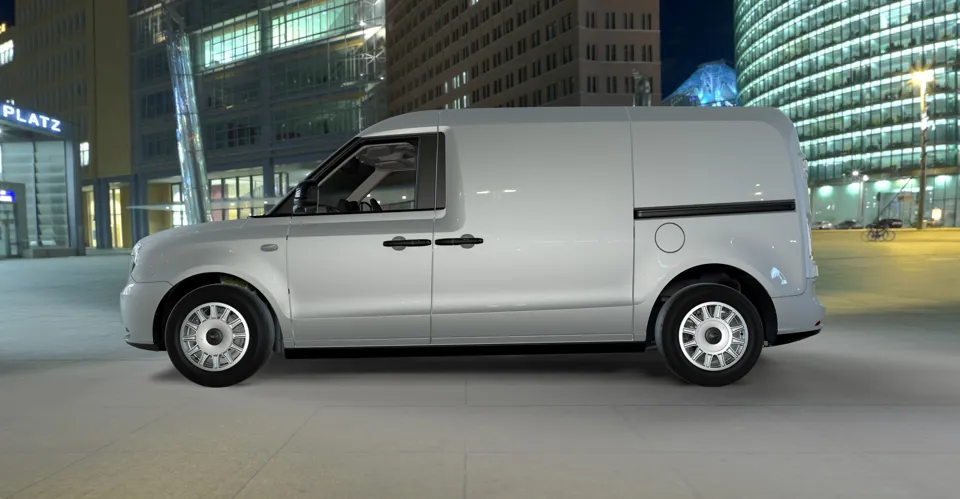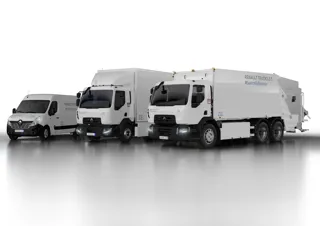The London Electric Vehicle Company (LEVC) has revealed a new electric van, which is expected to go on sale next year.
It is based on the same platform as the company’s recently-launched TX electric taxi and the as yet unnamed van promises competitive wholelife costs, expected to rival diesel alternatives.
Fleets will be at the forefront of LEVC’s strategy and it claims the van will be “ideal for urban delivery”.
The firm isn’t just talking about last-mile delivery though. With a range-extending petrol engine on board, LEVC says the van can be driven into a city from an out-of-town distribution centre, then used as a zero-emission vehicle in low- or zero-emissions zones.
LEVC is targeting delivery businesses that cover less than 100 miles per day in a vehicle with a one-tonne payload.
Bosses from LEVC have remained tight-lipped about facts and figures for now, but did reveal that the van’s gross vehicle weight is the same as that of the TX. The two also utilise the same motor and battery, so an all-electric range of 80 miles should be achievable.
The range-extender technology gives the TX a range of more than 400 miles. Charging the battery to almost full takes around 20 minutes on a rapid charger or two hours with a fast charger.
With aluminium body panels helping to minimise weight, the van is expected to offer a similar payload to its diesel competitors, such as the Ford Transit Custom.
LEVC also confirmed that the van will be able to hold two euro pallets and will be fitted with rear barn doors and a sliding side door.
Prices for the taxi start at £55,000 and LEVC suggested the van will not be any cheaper than this.
Chris Gubbey, CEO of LEVC, said: “We don’t expect operators will be looking to replace their whole fleet with the electric van but they will buy them where the total cost of ownership (TCO) is more competitive. We believe there are certain circumstances where we can offer them a more competitive TCO.”
The company aims to trial prototype vehicles with 20 fleets before the end of 2018 to help it develop the final product and raise awareness.
It has not confirmed any partnerships yet, but Gubbey said finding partners won’t be tough.
“The desire for clean air in our cities is definitely driving pressure for EV,” he added.
Finalised models are due to start production in spring 2019, with the first being sold in Q3 of the same year.
LEVC is owned by Chinese automotive firm Geely, the same company that owns the Volvo car brand.
Under the skin of the LEVC van is a Volvo 1.5-litre petrol engine, used as a range extender to maintain or charge the battery.
The battery is a larger version of the one found in Volvo’s plug-in hybrid cars.
In the taxi, LEVC has also used a number of Volvo components; including the infotainment system and some switchgear. Much of this is expected to be carried over into the van.
There will also be a suite of safety equipment fitted as standard, which, LEVC says, is “crucial for urban operations”. Key features will include airbags, autonomous emergency braking, traffic sign recognition and lane departure warning.
The van’s platform is adaptable and LEVC has not ruled out the possibility of different configurations or even larger versions in future.






















Login to comment
Comments
No comments have been made yet.